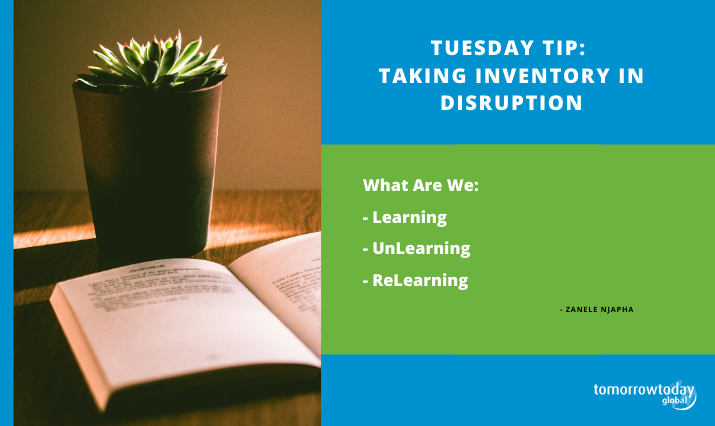More than ever before, society can stand behind Alvin Toffler in saying that “the illiterate of the 21st century will not be those who cannot read or write, but those who cannot learn, unlearn or relearn.”
The rate of change under which we exist and operate puts continued pressure on us to be flexible about how we execute and interpret our surroundings. In any given situation where one is disrupted in some way, we are often encouraged to ‘look at the bright side’ or ‘seek the opportunities’.
If we’re honest with ourselves, this is not something that is easy to do, especially in a mind that is trying to process a disruption it may not have seen coming. It’s the obvious response, but surely not the most natural or one we’ve trained ourselves or systems to instantly turn to in times of crisis.
What may work better, that I wish to suggest is to begin with assessing the lessons identified. Reflecting on lessons that may be nestled beneath a disruption begins the process of seeing and then taking advantage of any opportunities for growth and even innovation.
If you have not already shifted your awareness around this crisis, then I encourage you begin this process today. It was Robin Sharma who identified that awareness always precedes choice, which precedes change. If we have any hope for positive change, the first shift must be our awareness. Now let’s begin.
What are we learning?
Think about the knowledge/insights, skills, values and attitudes we are acquiring during this time. These can be insights around ourselves as individuals, our situation or any part of the wider systems we are a part of.
What are we having to relearn?
There may be knowledge/insights, skills, values and attitudes we had shelved or neglected that we are now having to re-assess, re-instil and re-engineer into our awareness or environments.
What may we have to unlearn?
Begin to critically assess the situation for any knowledge/insights, skills, values and attitudes that were a part of the ‘old normal’ that we may be restricting us from progressing into this ‘new normal’.
As you answer these questions, try to think about them from a varied number of perspectives. Begin with the way we operate as individuals, then move onto how we relate to one another, to our governments and then finally the extended global community.
Also think about any learning, relearning and unlearning relating to our policies, our economies and any other structures or systems that have kept the wheels turning for many years at a community, national or global scale.
Once we have a better perspective of the lessons, seeing opportunities is not only easier, it becomes an almost instinctive next step.
I’d be interested to hear some of your top takeaways from this exercise via email, do reach out.
_________________________________________________________________________________________________________
About the author of today’s Tuesday Tip – Zanele Njapha
In the face of disruptive change, Zanele assists organisations to become future- fit: adaptable, resilient, innovative, proactive and confident through helping them crack the unlearning code.
She does this by facilitating the understanding that learning, unlearning and relearning must be the crux and heart of an organisation’s DNA if they are serious about sustained relevance in a shifting climate.
Email [email protected] for more information or to connect with Zanele



Trackbacks/Pingbacks